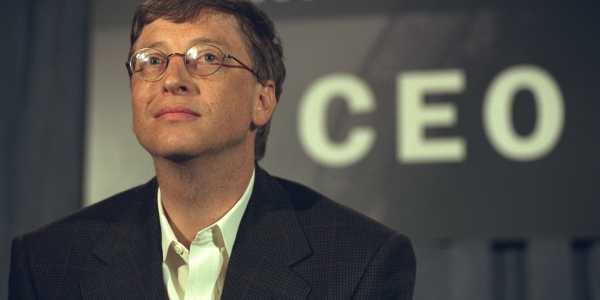
With the economy in a slump, and company headcount having growing sharply in recent years, the mandate to managers was to clamp down on free-wheeling spending. “We need to halt the growing practice of handing out random T-shirts and other goodies for simply attending a required business meeting,” the sternly-worded memo stated. Other examples of excess included catered lunches and oversized teams. “Every penny counts,” and everyone—from those in the executive suite to front-line coders—should get used to eating “weenies not shrimp.”
The year was 1993, and Microsoft had reached its limit on lavish employee spending and recreation.
The “Shrimp and Weenie Guidelines” memo, authored by Microsoft’s head of HR at the time, Mike Murray, became a touchstone in the software company’s history, and one which has renewed resonance among tech companies today.
Steven Sinfosky, the former president of Microsoft’s Windows business, shared the memo on Twitter on Tuesday, noting the similarities to the current state of affairs. “These stages of cutbacks are a natural evolution, not just of tech companies but all companies,” Sinofsky noted in a fascinating, must-read 15-tweet thread.
Financial prudence is top of mind at many — if not most — tech companies today. Only four months into the new year, 554 tech companies have laid off a total of 167,004 employees, according to Layoffs.fyi. Meta CEO Mark Zuckerberg branded 2023 as the company’s “Year of Efficiency,” which included mass layoffs and nixed free laundry services. Salesforce, a company which has long referred to its employees as a family, has laid off thousands of employees and lowered its annual “gratitude” bonuses.
The changes have been jarring to employees who haven’t lived through previous downturns. Tech employees have long enjoyed their over-the-top perks, a time-honored tradition of free snacks and bean bags was what drove computer science grads to companies like Meta in the first place — with the expectation that they work long hours to provide shareholder value. If they were going to live at the office, the company would have to entice them with ping pong, IPAs, and high six-figure salaries.
Salesforce CEO Marc Benioff described the challenge in an interview with Fortune’s Michal Lev-Ram last month: “It’s hard for them [employees] because they don’t understand why you’re taking certain actions or how it’s going to affect them,” Benioff said. “It’s understandable because we’ve had an up market for more than a decade.”
As Sinofsky explained in his Twitter thread on Tuesday, the situation in 1993 was especially scary within Microsoft because PC industry was still in its infancy.
“The company was going through challenges like much of the macro-economy. Only we were worried ‘maybe this is it? PCs were saturated’—MSFT paranoia. GDP was down. Sales were slowing. We were getting complacent,” Sinofsky said.
The “Shrimp and Weenies” memo was intended to remind Microsoft employees of the values that made the company successful. But Sinofsky said it could easily have backfired.
In the memo, Murray took aim at various instances of extravagant spending, using a mixture of humorous analogies and theatrical astonishment to get his point across. Among the targets of his exhortations: “T-shirts and Stupid Dog Tricks” (an allusion to the David Letterman late night television show that was popular at the time) and “Headcount growth—and the lack thereof.”
“It would not be surprising to see Gucci leather jackets with the MS logo as a reward for attending a required meeting, or for successfully moving from one building to another!” Murray wrote, decrying the unnecessary spending on company schwag.
“One of the reasons we’re successful (and wealthy) is because we’ve been serving weenies (not shrimp) for the past 17 years! No need to change the menu,” Murray wrote.
Even then, the tech industry was incredibly competitive, and Murray used Microsoft arch-rival Novell to underscore the stakes.
“Novell recently announced (yet another) record quarter of revenue growth and profitability. The frosting on this cake was to lay off 4% of their 3,600 employees. Novell is serving weenies, not shrimp,” Murray wrote. This was his candid way of telling rank-and-file employees to become more cost-efficient or risk becoming a redundancy.
As tech leaders, many guilty of over-hiring during the pandemic, scramble to bring their costs in line with the new market reality, many may be asking themselves the question posed by Microsoft’s HR boss three decades ago:
“Excess will destroy success. Is your team fueled by weenies or shrimp?”
